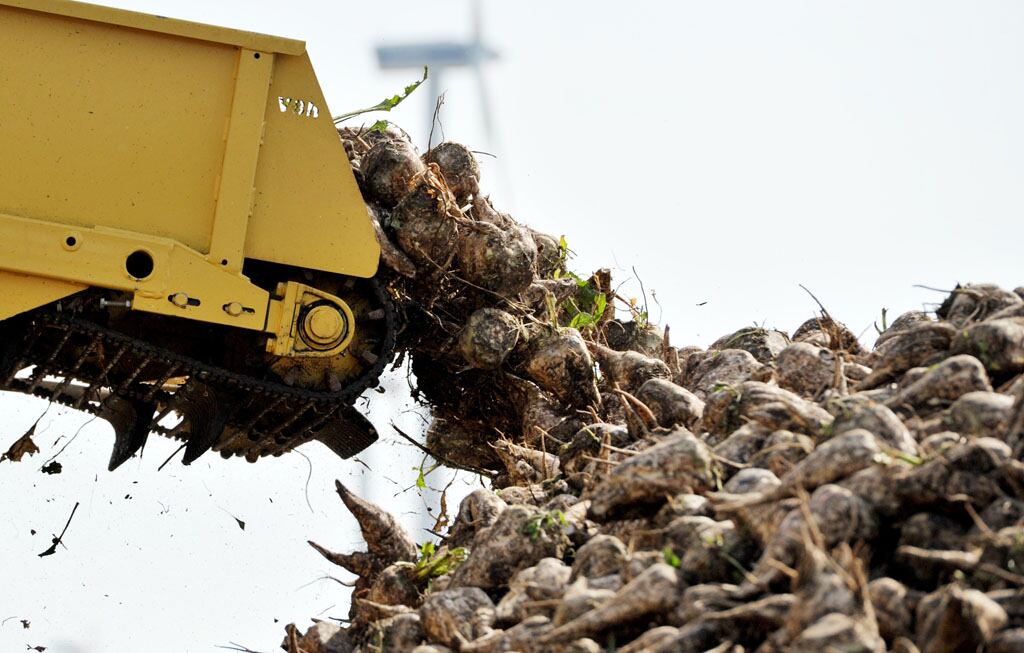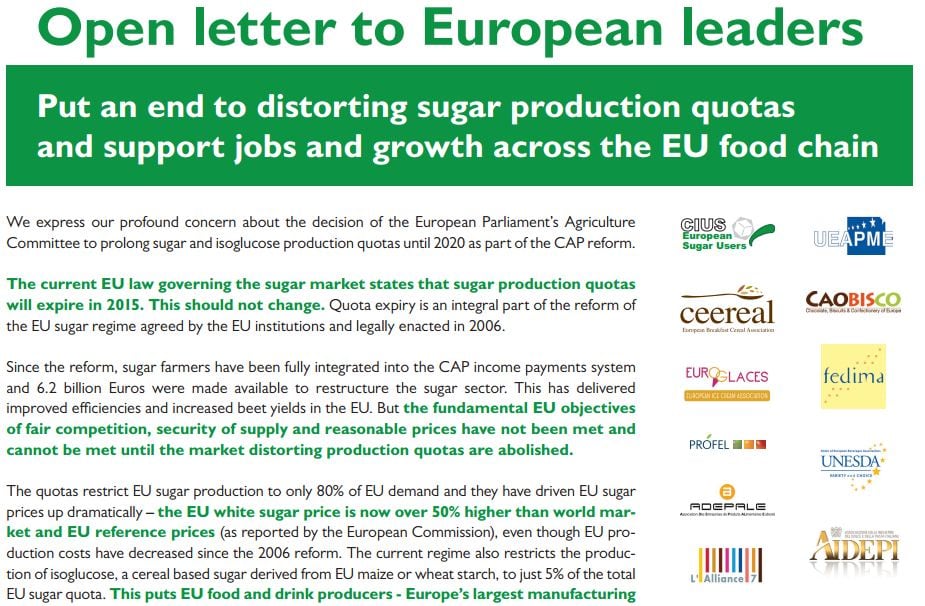The company says the debate had focused attention on quotas for beet sugar, which the European Commission wants scrapped in 2015 to quickly bring the EU into the global free market; while the European Parliament appears to be backing the beet sugar growers sector, which wants protections kept until at least 2020.
Lost in the debate is cane sugar, said T&L Sugars VP of EU affairs and strategy, Gerald Mason, at the Agra Europe 'Outlook for Agriculture' conference in Brussels today.
“By failing to introduce equal treatment for cane and beet processors in accessing their raw material, the ongoing reforms are heading towards a very anti-competitive outcome,” Mason said.
“As a gift of legislation that maintains high external import duties on cane while manipulating beet production quotas one way or the other, the planned reforms will enable the giant beet sugar companies to further increase their market share in an already highly concentrated European sugar sector.”
“The seven largest beet sugar producers already control 81% of the European sugar market.”
The quota issue is set for final vote by European Parliament plenary committee in the week commencing March 11, a vote most expect will follow a January meeting of the Committee on Agriculture and Rural Development which voted 33-11 to extend the EU sugar quota to 2020.

“Profound concern”
In today’s open letter the 27 groups including the Committee of European Users of Sugar (CIUS), the European Association of Craft, Small- and Medium sized Enterprises (UEAPME) and many national associations for confectionery and bakery items, said it would be a disaster if EU Common Agricultural Practice (CAP) reforms that included sugar quota reform were delayed.
“We express our profound concern about the decision of the European Parliament’s Agriculture Committee to prolong sugar and isoglucose [known as HFCS in many parts of the world] production quotas until 2020,” the groups wrote.
Speaking with FoodNavigator, CIUS secretary general Muriel Korter, said the quota system meant European manufacturers – especially smaller firms (SMEs) – could not afford EU-grown and refined sugar which had near-doubled in price to about €720 per tonne compared to €377 per tonne outside the EU.
“We want to buy European sugar but we cannot because it is too expensive,” Korter said.
Groups like the CEFS (Comité Européen des Fabricants de Sucre), which represents European sugar growers, say the quota extension is needed to give the sector time to improve competitiveness and protect about 180,000 jobs.
Korta disagreed: “The EU has the best yield productions in the world but the price we sell our sugar at in no way reflect that. All parties in the supply chain, including growers and then consumers, will benefit from the elimination of these quotas.”
The open letter stated in part: “Since the reform, sugar farmers have been fully integrated into the CAP income payments system and €6.2bn were made available to restructure the sugar sector. This has delivered improved efficiencies and increased beet yields in the EU.”

“But the fundamental EU objectives of fair competition, security of supply and reasonable prices have not been met and cannot be met until the market distorting production quotas are abolished.”
They said EU growers could only account for 80% of local demand and that cereal sugars like those derived from wheat and maize that produced isoglucose were discriminated against as they were limited to 5% of the total EU sugar quota.
The letter also warns that the artificial prices created by the quota are preventing both EU27 and global growth for Europe's sugar industry.
“Europe cannot afford to hamper its own competitiveness and lose ground in growing global markets. Yet this is precisely what Europe risks doing if the anachronistic and counterproductive production quotas are maintained. The top priorities for the EU at present are jobs, competitiveness and growth. Continuation of EU sugar quotas delivers on none of these.”
